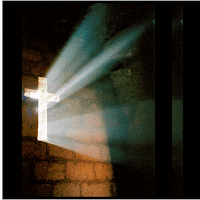Many years ago a Californian purchased London Bridge and shipped it all home, so he could preserve something of London’s history. Others, envious of the traditions and pageantry of the British monarchy, have tried to invent their own dynasties, calling themselves things like “William Gates III”. I too marvel at the richness of their traditions and the grandeur of their ancient places. But, whether we like it or not, it simply takes a long time to create something so rich. America has only had less than 250 years to build its own traditions. It has done well – its military pride, constitution and other great traditions are rich indeed, but Britain has been at it for two millennia and has long since perfected it.
That ends my introduction to a new leadership series: Economic alternatives.
That ends my introduction to a new leadership series: Economic alternatives.
The Queen can trace her line back about a thousand years, but Israel has had kings dating back four thousand years. Many of her ancient buildings still stand, having endured wars and tumults, the comings and going of empires and the rise and fall of nations. That certainly binds the nation together and as such her people will not give an inch of their hard-won legacy for a grain of cheap peace. Peace for the Jew was never about absence of war, but the presence of a God-given identity.
The Brits on the other hand can only stumble in awe at the thought of Jewish history.
The Brits on the other hand can only stumble in awe at the thought of Jewish history.
Beyond the borders of Israel, the Diaspora are held together as they always were, by strong cultural traditions. Wherever Jews were scattered, they restored their traditions: the unseen walls that separated them from the rest of humanity more effectively than ghetto walls could ever do, resulting in the most enduring culture of history.
Muslims also have a strong culture. Like the Jews, they look out for each other, observe regular liturgical gatherings and redistribute their resources. They also dignify their faith with conservative dress codes and other symbols. For all the negatives that westerners observe from afar off, Muslims and Jews are sustained by strong chords.
Unfortunately, little of that is true for Christians. Though we have had two thousand years to forge a unifying culture, and though we have enough history behind us, Christians are culturally poor. Oh sure, most of us observe Christmas and Easter, but we have allowed commercialism to co-opt all of that and transform it into a hedonistic farce. And yes, some Christians observe lent and dignify other holy seasons, but generally our Holy days are neither ordained of God, nor universally embraced and our value systems have been hopelessly compromised by social influences.
A lot of our differences are a cultural phenomenon, the result of the progressive revelation that has slowly defined the church and her place in the world. However, there is no excuse for our lack of ethos. We generally don’t care for each other and often harm each other in market places, churches and other social exchanges. We readily do charitable things for the poor and downtrodden, but in so doing we end up serving the social role that society has imposed on us. Yet, we are so uncharitable to our own.
Forgive me for being harsh, but what worries me is that our lack of a unifying ethos, value system, cultural norms, festival calendar or a commonwealth of souls, has reduced us to a scattered heterogeneity that is far too vulnerable to the troubles coming on the world. How will we endure and rise above coming crises unless we regroup and redefine our culture or build upon the solid foundations of our faith? I am not being critical for the sake of criticism, but because I see trouble coming and fear that we are so ill equipped for that.
What do you think?
(c) Peter Eleazar @ www.4u2live.net



No comments:
Post a Comment